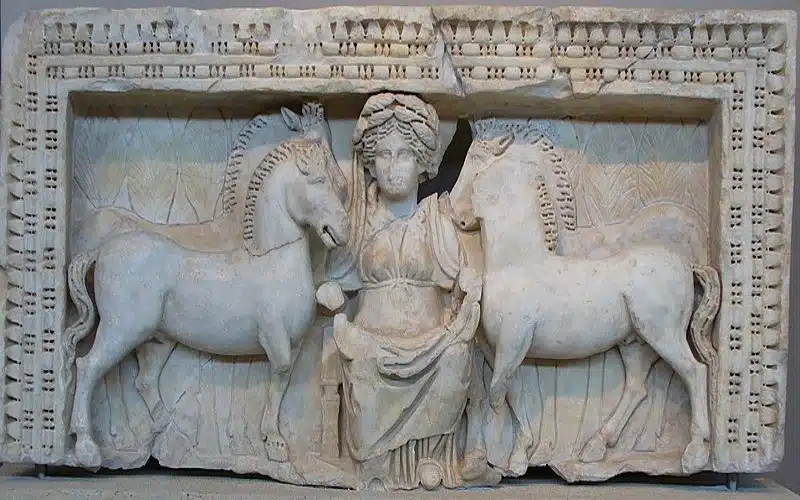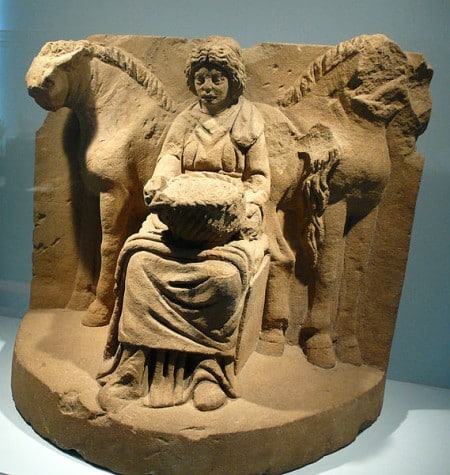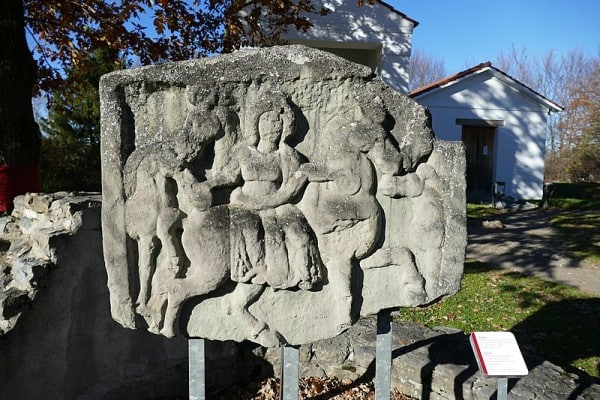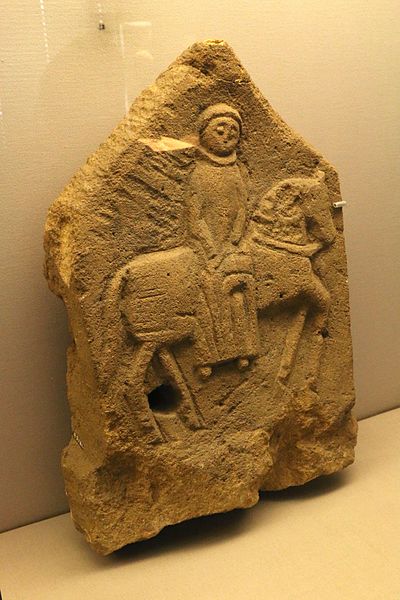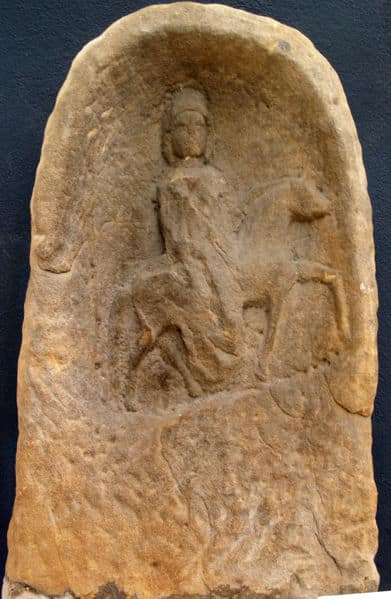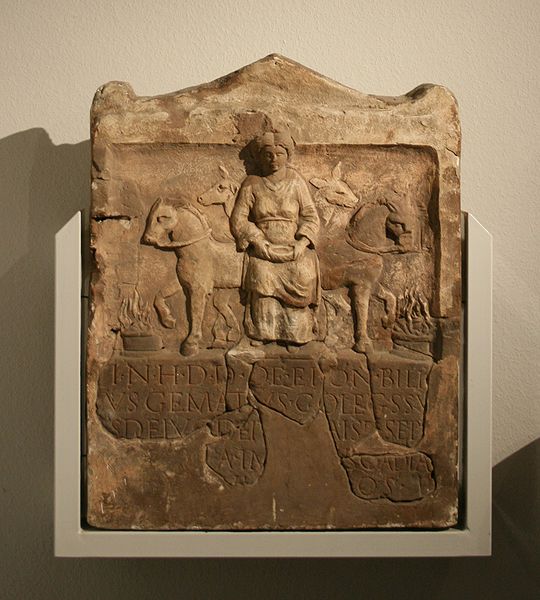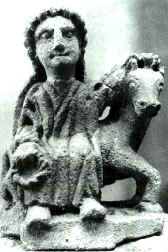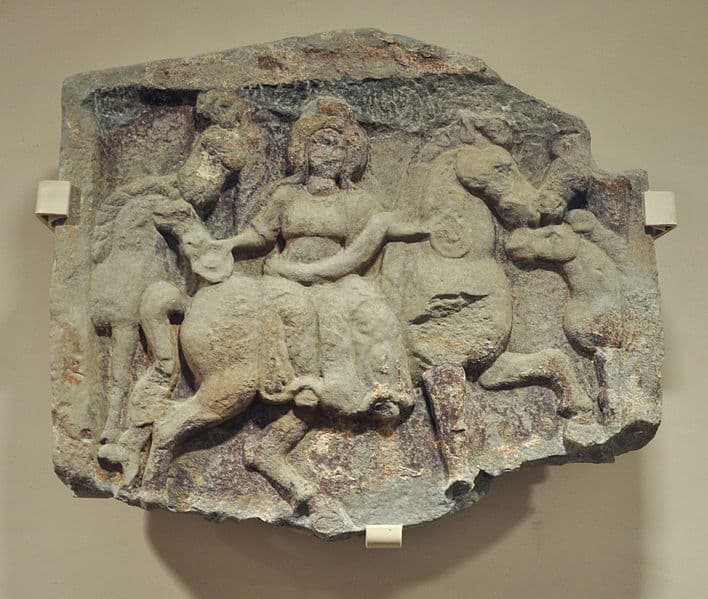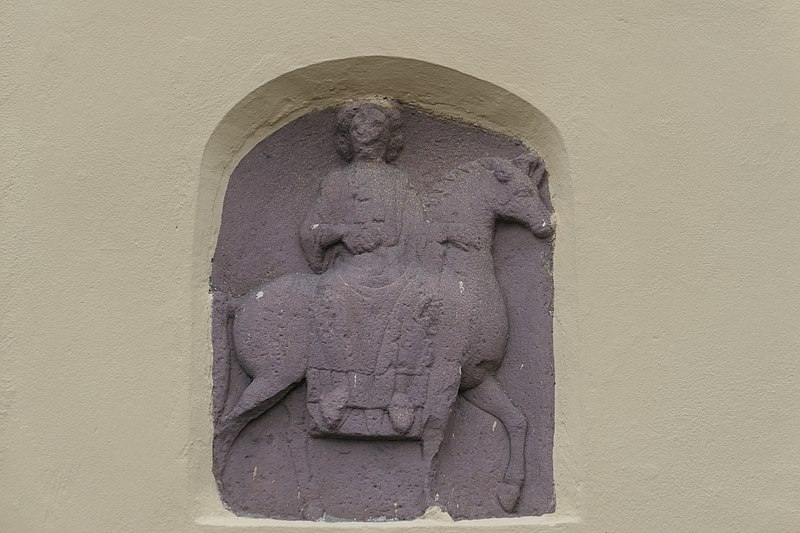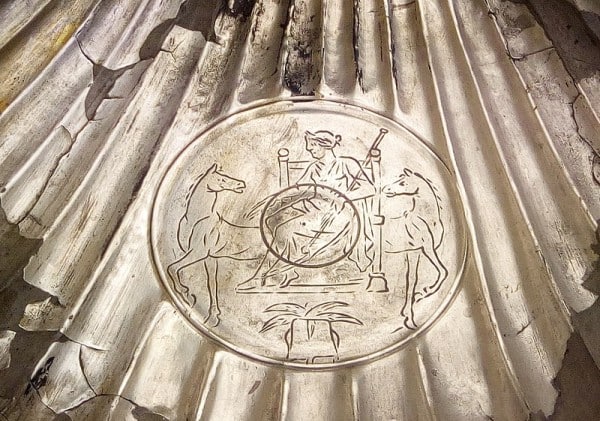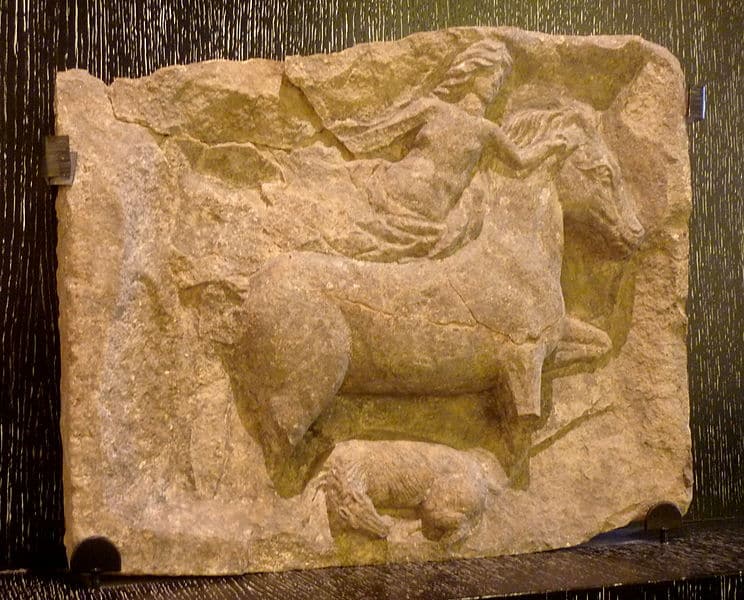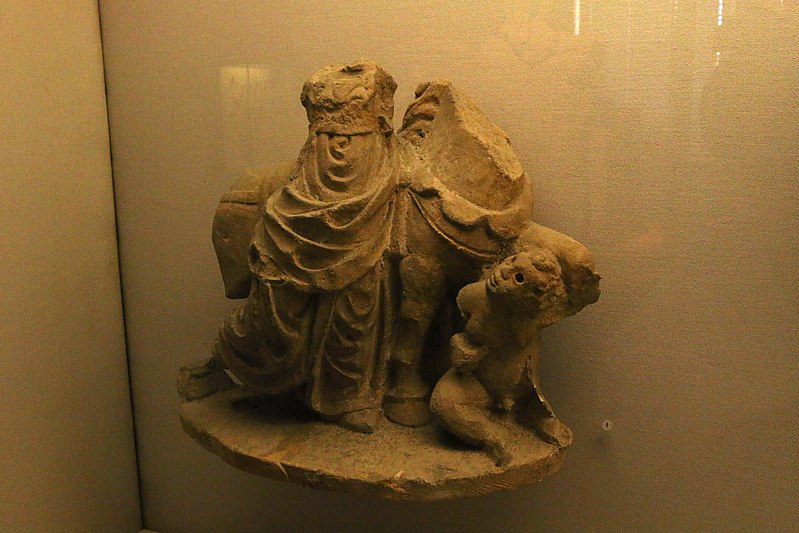Epona is one of the oldest, most well-known, and beloved of the Celtic deities. Her influence was such that the Romans adopted this deity and gave her her own feast day, December 18th. Epona is the goddess of horses and their riders and is also powerfully associated with fertility. The Celts knew her also as the Divine Mare, the Mare Goddess, and the Great Mare.
Epona is often depicted holding or with keys. This points to her connection with the Underworld as well as the dream world. She can sometimes send her horses as messengers to these other realms.
If you feel an affinity with Epona, keep reading for ways to access your inner goddess. Welcoming her into your daily life could help you find balance and harness your innate abilities and gifts!
Depictions of Epona
Epona was depicted by the Celts, and later the Romans, as a young Goddess either riding or accompanied by horses. Celtic shrines and statues often showed Epona with a cornucopia or ears of grain, representing her connection with fertility.
Epona has close links with Rhiannon, a Celtic goddess associated with deep magic and healing, often depicted traveling on a powerful white horse. She is also connected with the Celtic triple goddess of war, death, and fate, The Morrigan.
Origins of the Horse Goddess
Unfortunately, very few of the Celtic stories regarding Epona have survived. This is largely because it was counter to Celtic culture to write down religious tenets and traditions. However, some inscriptions remain, along with the written texts of early Christian monks, who cataloged many Celtic myths and legends.
A single text concerning Epona’s origins has survived, by the late Greek writer Agesilaos. According to the story, Epona was born of a mare and a man and was named by her mother. The giving of a name is profoundly important in Celtic mythology. This suggests, therefore, that Epona’s mother was an earlier Horse Goddess worshiped by the Celts.
Roman cavalry units, stationed in Gaul, adopted Epona as their patroness and carried her standard to Rome. There she had a shrine in the barracks of the Imperial Bodyguard. In Rome they worshiped her as Epona Augusta. Her powers and protection were invoked on behalf of the Emperor himself.
Across Europe, there is evidence of the revering of Epona. Small niches were cut into the walls of ancient stables and barns to hold little statues of the goddess.
Finding Epona
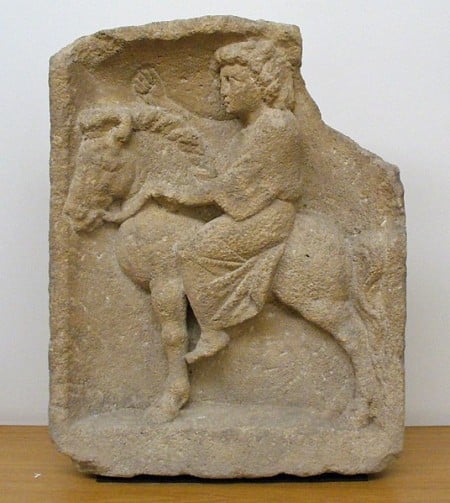
Animals – particularly horses – fall under Epona’s care. Those who feel a connection with creatures great and small may be drawn to this Celtic deity.
You can call on Epona for many things. This includes protection and healing, especially for animals. She can boost fertility (of body, mind, and spirit) and enhance dreams and their recall. Epona’s Irish name is Mare – this is widely believed to be the origin of the word ‘nightmare’ – and she may also be called on to banish children’s bad dreams.
Epona’s powers include divination and pathwork; she can help women feel whole and complete in their inner and outer aspects.
Welcoming Epona Into Your Life
There are many ways to access this goddess archetype. Below you’ll find some simple practices to welcome Epona into your daily life.
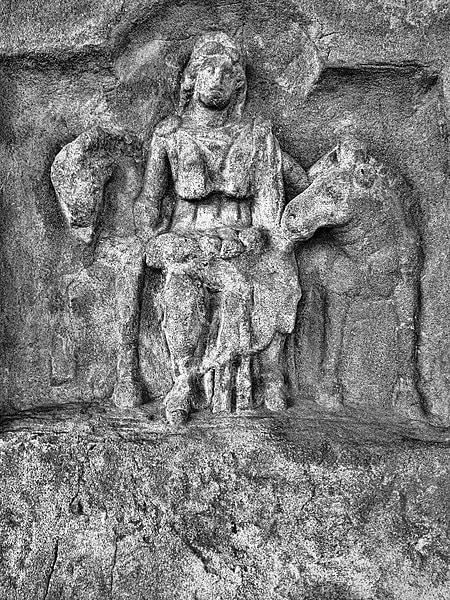
Sacred Symbols
Roses are one of this goddess’ sacred symbols, and garlands of these flowers would regularly decorate her shrines. Grow roses in your garden, or keep cut roses in your home with the intention of honoring Epona.
If you wish to use an altar as part of your practice, leave roses as an offering to the goddess. Alternatively, burn a rose-scented candle to honor her. Keys, cakes, and fruit were also traditionally left as gifts for Epona, along with something for her horses, such as a handful of oats! You may want to have a small figure or a picture of a horse, as the focus of your altar.
The crystal azurite, like the goddess herself, is known for its healing properties and ability to offer clear insight. Azurite, too, is a perfect offering for this deity.
Connecting with Epona’s Animals
While all animals fall under Epona’s protection, the most sacred to this goddess are horses, dogs, geese, and ravens.
Think of ways to spend time around – or in the vicinity of – these animals. If this isn’t possible, seek out images or artworks depicting these particular beasts or simply find out more about them. You may wish to have a go yourself at drawing one of Epona’s beloved animals, to place on your altar.
Through Meditation
Meditation is a wonderful way to connect with our spiritual side and make a connection with the divine – both within and outside of us. It can take some practice to meditate effectively, but it’s important to stick with it to reap the benefits of the practice.
Find a quiet space, sit or lie comfortably, and calm your mind. Focus on your breathing and Epona’s energy, and allow all other thoughts and concerns to drift away. If you feel your mind wandering, gently draw your attention back to your breath and the goddess. If you can, make a commitment to meditate every day. You may be surprised by how much better you feel in body and mind, and the greater affinity you feel with the divine.
Enjoy a Feast!
Apples, carrots, cake, and fruit are Epona’s sacred foodstuffs. The herbs purslane, coltsfoot, and vervain are also associated with this deity. Why not have fun marking the goddess’ holy day (set by the Romans as December 18th) with a feast incorporating dishes that use these ingredients? Hearty stews containing herbs and apples, and rich carrot cakes are perfect to honor Epona’s presence.
Getting Out into Nature
Simply taking a walk outside can be an effective way to get closer to the goddess, especially if done with intent. Walk mindfully, whether this is through a town park or deep forest, keeping your mind focused on what you can see, hear, and smell. Note any animals, plants, or trees you see that bring Epona to mind.
Collect natural items that catch your eye, such as feathers, pebbles, twigs, or small pieces of moss. Add these to your altar, if you wish.
Dreaming and Divination
Reconnect with your intuition as part of approaching and welcoming Epona into your life. Set an intention, and ask the goddess to help you dream more meaningfully. Keep a dream journal next to your bed to record your dreams and the emotions connected to them, upon waking.
Consider exploring divination, especially if this is something you have never practiced before. Tarot cards, oracle cards, or runes are all good places to get started with this. Read up on these practices, or simply spend time with your cards and runes, to get to know them and get a feel for their unique energy.
Epona and Healing
If you feel drawn to a healing practice, be this midwifery or Reiki, you may be hearing Epona calling you. You could find you have a natural ability for crystal healing, which can be really satisfying to explore. Consider taking a basic first aid course, learning about complementary therapies, or taking the first step into a career focused on medicine or caring. Epona will have your back!
The Mari Lwyd Horse Skull
Epona continues to appear in contemporary culture, making appearances in art and literature and even popping up in the video game The Legend of Zelda.
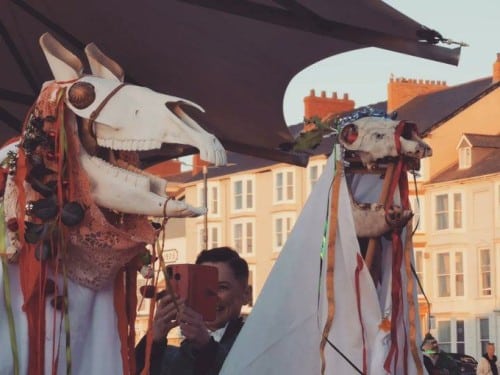
In South Wales, in the UK, ancestral reverence of Epona is in clear evidence in the Mari Lwyd folk wassailing custom. This tradition, performed at Christmas time, sees a hobby horse – a horse’s skull mounted on a pole, held by an individual underneath a sheet – and accompanying crowd, make their way through the village, requesting entry at houses through song. The householders traditionally deny entry a couple of times – again through song. Wassailers granted entry are provided with food and drink by their hosts.
This folk tradition is centuries old and is likely to have Epona at its root. As well as being the horse goddess, this deity has strong associations with winter and the underworld.
Epona, The Great Mare: Riding Through the Stars
A gentle, healing, yet immensely powerful goddess, Epona’s steps may have been trailing yours if you’ve always felt drawn to horses, healing, or the dream world. If you’d like to get to know this very special deity, use the ideas above to inspire your journey. Make time in your day and commit to a practice aimed at connecting with Epona. This could be through dedicating an altar, meditating, or simply reflecting on her sacred symbols.
Epona can offer profound protection, so call on her in challenging times, and feel the warmth of her presence lift you as you ride in her wake.
Other Celtic Deities
Thank you for coming along on this journey to explore Epona. If you are curious about other Celtic deities, I recommend you check out some of out other articles on them. We have written about The Morrigan, Ceridwen, another horse goddess named Rhiannon as well as Brigid, to name but a few.
Gallery
- Relief of the Godess Epona with horses in the ruins of Cambodunum, the Roman town in Kempten
- Goddess Epona found at Lantéfontaine in France
- Stela representing the Gallic goddess Epona, 3rd c. AD, from Freyming (Moselle), France. Musée lorrain, Nancy
- Epona relief from the Kapersburg Limes fort in the Wetterau Museum in Friedberg.
- Stone sculpture of Epona found on Auxois Hill (France)
- Bregenz, Vorarlberg Museum, Epona relief, 70–100 AD, later incorporated into the Bregenz city wall, revered as “Honor Guta”
- Königsbach Church Epona relief north wall
- Treasure of Rethel: shell with representation of Epona, detail of the medallion.
- Epona, Gallo-roman statue, from Allerey, Dijon archeological museum, France
- From the National Archaeological Museum of Saint-Germain-en-Laye near Paris France – Statuette representing godess Epona
Featured Image Credit: I, QuartierLatin1968, CC BY-SA 3.0, via Wikimedia Commons

